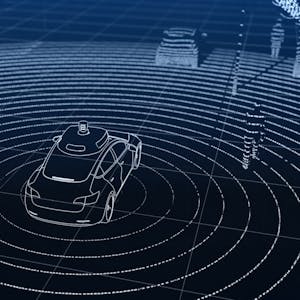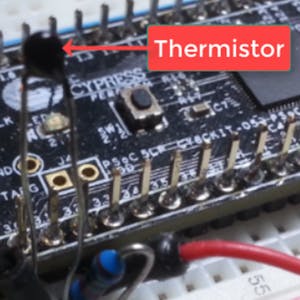State Estimation and Localization for Self-Driving Cars

$49
ENROLL NOWCourse Overview
Welcome to State Estimation and Localization for Self-Driving Cars, the second course in University of Toronto’s Self-Driving Cars Specialization. We recommend you take the first course in the Specialization prior to taking this course. This course will introduce you to the different sensors and how we can use them for state estimation and localization in a self-driving car. By the end of this course, you will be able to: - Understand the key methods for parameter and state estimation used for autonomous driving, such as the method of least-squares - Develop a model for typical vehicle localization sensors, including GPS and IMUs - Apply extended and unscented Kalman Filters to a vehicle state estimation problem - Understand LIDAR scan matching and the Iterative Closest Point algorithm - Apply these tools to fuse multiple sensor streams into a single state estimate for a self-driving car For the final project in this course, you will implement the Error-State Extended Kalman Filter (ES-EKF) to localize a vehicle using data from the CARLA simulator. This is an advanced course, intended for learners with a background in mechanical engineering, computer and electrical engineering, or robotics. To succeed in this course, you should have programming experience in Python 3.0, familiarity with Linear Algebra (matrices, vectors, matrix multiplication, rank, Eigenvalues and vectors and inverses), Statistics (Gaussian probability distributions), Calculus and Physics (forces, moments, inertia, Newton's Laws).
Course FAQs
What are the prerequisites for 'State Estimation and Localization for Self-Driving Cars'?
Prerequisites for this continuing education class are set by University of Toronto. Most professional development online classes benefit from some prior knowledge. Please check the provider's page for specific requirements.
Will I receive a certificate for this CE class?
Yes, upon successful completion, University of Toronto typically offers a shareable certificate to showcase your new skills and fulfill your continuing education requirements.
How long does this online course take to complete?
Completion times for online continuing education courses vary. The provider's website will have the most accurate estimate of the time commitment needed.





